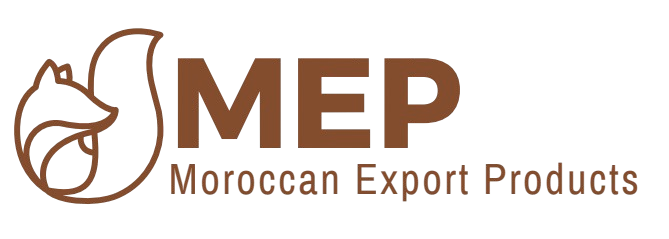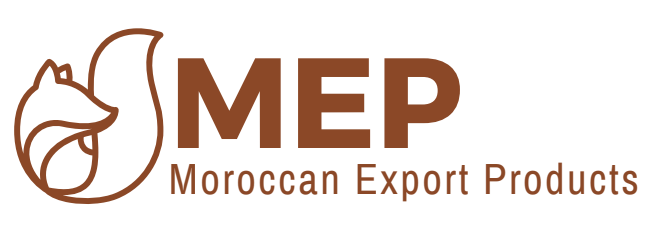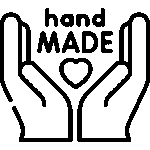Goldberg: Exporting High-Quality Moroccan Handmade Crafts
Goldberg is a Moroccan company specializing in the export of high-quality handmade crafts. We provide a complete service that solves key logistical and customs-related challenges faced by artisans and international clients. Many Moroccan artisans are not registered as formal businesses and cannot handle export procedures such as customs clearance, invoicing, transport, and international compliance. Additionally, there are issues of illegal trafficking and unregulated transport practices that further complicate the export process. Our mission is to bridge this gap and ensure that authentic Moroccan crafts are delivered to international markets without the usual complexities.
Goldberg offers a comprehensive service tailored for both artisans and international buyers. We collect goods from artisans across Morocco and store them in our warehouse, ensuring the products are properly packaged to prevent any damage during transportation. We handle all necessary export procedures, including customs clearance, invoices, packing lists, and certificates of origin.
We also offer a flexible transport solution, providing both container shipping and air freight options for faster deliveries. Our services include packaging, ensuring quality protection for all products, and taking care of all logistics and documentation.
As part of our service, we issue artisan licenses, provide detailed invoices, and prepare the necessary export certifications. Goldberg ensures all transactions are fully compliant with international standards and we handle all aspects of the supply chain, from the initial artisan collection to final delivery. We work under recognized Incoterms to ensure clarity in shipping terms, making the process smooth and secure for both artisans and clients.
Common Problems in the Moroccan Handmade Crafts Export Process
Lack of Official Business Registration
Many artisans in Morocco operate without formal business registration, making it impossible for them to handle critical export procedures such as customs clearance, issuing invoices, and ensuring international compliance. This often results in delays, legal complications, and added costs, as these artisans cannot provide the required documentation for a smooth export process.
Illegal and Unregulated Transport
In the absence of formal transportation options, some artisans resort to using illegal or unregistered transporters, exposing their products to risks such as damage, theft, or delays. This also adds a layer of complexity to the export process, as dealing with unofficial carriers can create issues with customs and violate international transport regulations.
Customs and Compliance Challenges
Moroccan artisans face frequent difficulties with customs clearance, especially when they lack the necessary documents or when the goods are not properly declared. This can result in high customs fees, delayed shipments, and complications during the customs inspection process. The lack of proper documentation and knowledge about international trade standards also leads to issues with compliance.
Trafficking and Fraud
In some cases, illegal trafficking networks take advantage of the informal nature of the artisan sector, smuggling goods out of Morocco without proper documentation or customs clearance. This results in products being sold illegally, undermining the authenticity of Moroccan crafts and harming both local artisans and international buyers.
Inadequate Packaging and Damage During Transport
Many artisans, particularly those working on a small scale, lack the resources to invest in proper packaging materials. This results in damaged goods during transportation, leading to a negative experience for buyers and a loss of income for the artisans. Packaging that fails to protect delicate items such as pottery, textiles, and jewelry is a common problem, affecting the integrity and quality of the products.
Financial and Legal Liability
Artisans who handle their own exports often face legal and financial risks. If something goes wrong during transport or customs clearance (such as damaged goods or delays), the artisan bears the full responsibility, which can be financially devastating, especially for those operating without a formal business structure.
Goldberg’s Role in Solving These Challenges
Handling Customs Clearance and Compliance: Goldberg manages all customs procedures and ensures full compliance with international regulations. We guide artisans through the often complex customs process, minimizing delays and ensuring that all required paperwork is properly handled.
Providing Reliable Transport: Goldberg works with trusted and certified transporters to ensure that goods are transported securely and legally, avoiding the risks associated with illegal or unregistered carriers.
Managing Packaging and Product Handling: We offer packaging services that ensure the safe delivery of goods. Proper packaging is critical to prevent product damage, and Goldberg uses high-quality materials to ensure the protection of delicate items.
Issuing Invoices and Artisan Certificates: Goldberg issues the required invoices and artisan certificates, ensuring that all documentation meets international standards. This helps protect the artisans’ work and ensures the legitimacy of the goods being exported.
One-Stop Solution for Artisans and International Clients: We provide a comprehensive service that covers all aspects of the export process, from the initial collection of goods to final delivery, ensuring a seamless experience for both artisans and buyers.
Goldberg simplifies the export process for businesses, individual buyers, and artisans who wish to sell Moroccan handmade crafts globally but face challenges with logistics, customs, and compliance. We handle all the necessary procedures to ensure smooth, secure, and legally compliant transactions, while helping artisans navigate the complexities of international trade.



 Tamegroute products
Tamegroute products Moroccan Rugs
Moroccan Rugs Bamboo products
Bamboo products Bamboo Lamp
Bamboo Lamp Baskets/Bags
Baskets/Bags Chair
Chair pouf
pouf Table Lamps
Table Lamps Moroccan Tiles
Moroccan Tiles Moroccan Tajines
Moroccan Tajines Moroccan tents
Moroccan tents Moroccan living room
Moroccan living room Handmade Vases
Handmade Vases Moroccan Basin
Moroccan Basin test 5
test 5